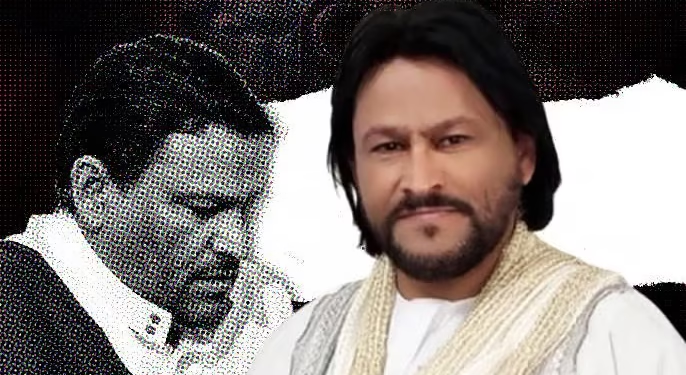The Tragic Assassination of the World’s First Openly Gay Imam, Muhsin Hendricks
The LGBTQ+ community worldwide is in shock and mourning following the brutal assassination of Muhsin Hendricks, the world’s first openly gay imam. Hendricks was shot dead in the South African town of Gqebahra in what many suspect to be a targeted hate crime. His death has sparked widespread outrage, particularly among LGBTQ+ advocates and human rights organizations, who have long recognized his efforts in bridging the gap between faith and sexual identity.
The Assassination: What Happened?
According to police reports, Muhsin Hendricks was traveling with his driver when another vehicle suddenly blocked their path. Two masked assailants emerged from the vehicle and opened fire on Hendricks’ car. The attack was ruthless and calculated, leaving Hendricks dead on the spot while his driver sustained injuries. Authorities are still investigating the motive behind the killing, but initial suspicions point toward a possible hate crime due to Hendricks’ controversial position as an openly gay religious leader.
A Life of Courage and Advocacy
Muhsin Hendricks’ journey was one of immense bravery and resilience. Born and raised in a conservative Muslim community, he publicly acknowledged being gay in 1996. In doing so, he faced significant backlash from traditional religious circles, many of whom viewed his sexual orientation as incompatible with Islamic teachings. However, instead of retreating into silence, Hendricks took a stand to help others who were struggling with their identities within the faith.
In his pursuit of creating an inclusive religious space, he founded the Al-Ghurabah Mosque in Wynberg, near Cape Town. This mosque became a sanctuary for gay Muslims and marginalized women—two groups often ostracized in mainstream religious communities. His work was not just about providing a place of worship but also about offering support, counseling, and advocacy for those who felt rejected due to their sexual orientation.
Threats and Resistance
Throughout his life, Hendricks faced immense opposition. He received death threats and was denounced by conservative Islamic leaders. His views on LGBTQ+ inclusion within Islam were considered radical by many, but he remained steadfast in his beliefs.
In the documentary The Radical, Hendricks spoke about the numerous threats against his life. Despite the risks, he maintained that “the need to be authentic was greater than the fear of dying.” His words now serve as a chilling testament to the dangers he faced and the courage he displayed in defying societal and religious norms.

Global Reactions and Outrage
The assassination of Muhsin Hendricks has sent shockwaves across the globe. The International Lesbian, Gay, Bisexual, Trans and Intersex Association (ILGA) has condemned the killing, calling it a severe setback in the fight for LGBTQ+ rights within religious spaces. Many activists fear that his murder could set a dangerous precedent, discouraging other progressive religious leaders from advocating for inclusion and tolerance.
Social media has been flooded with tributes and messages of support from individuals who were inspired by Hendricks’ work. Many have described him as a beacon of hope for gay Muslims, someone who gave voice to those who felt silenced by religious dogma. Protests and vigils have been held in various cities, calling for justice and urging authorities to take decisive action in investigating the crime.
The Ongoing Struggle for LGBTQ+ Rights in Religious Spaces
Hendricks’ tragic death has reignited discussions about the struggles faced by LGBTQ+ individuals within religious communities. While some progressive movements within Islam and other faiths have started embracing inclusivity, there remains a deep-seated resistance in many traditional circles.
The challenge is not just about changing religious doctrines but also about changing societal attitudes. Hendricks worked tirelessly to show that faith and sexual identity do not have to be at odds with each other. His mission was to create an environment where individuals did not have to choose between their faith and their identity—a mission that many now feel compelled to continue in his honor.
Seeking Justice and Moving Forward
As investigations continue, human rights groups are urging South African authorities to classify the killing as a hate crime and ensure the perpetrators are brought to justice. While his life was cut short, Muhsin Hendricks’ legacy remains strong. His work has paved the way for discussions on LGBTQ+ rights in Islam, and his courage has inspired countless individuals to embrace their identity with pride and authenticity.
His death is a reminder of the dangers that come with challenging deeply rooted beliefs, but it also underscores the importance of continuing the fight for equality, acceptance, and love. In honoring Hendricks’ memory, activists and religious reformists are vowing to carry forward his mission—to create a world where no one has to choose between their faith and who they truly are.

Disclaimer: This is an AI-generated live blog and has not been edited by Localtak staff.
Also Read : Chahat Fateh Ali Khan Unveils His Take on Bollywood Classic ‘Chaiyya Chaiyya’ 2025















 Categories
Categories









